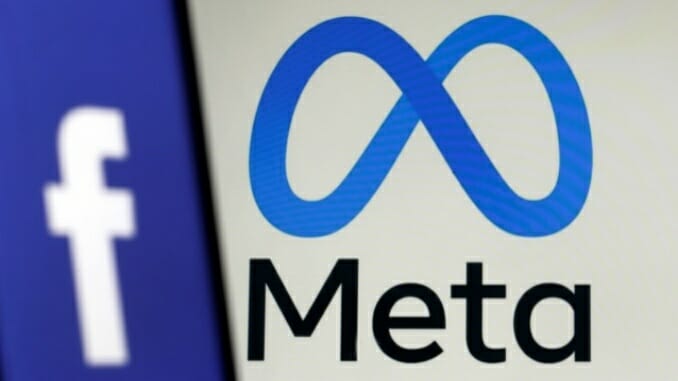
Meta’s stock price is currently in freefall after Wednesday night’s earnings revealed some notable, negative firsts for the social media giant. The company reported that Facebook lost roughly one million daily active users, the largest user loss the platform has seen in a single quarter. User growth on its other platforms, Instagram and WhatsApp, slowed as well. Meta reported only adding around 10 million users across its entire app library in the same timespan.
Reality Labs, the division focused on the Metaverse future Meta CEO Mark Zuckerberg continues to heavily promote, lost $10 billion. The company is projecting an additional $10 billion dip in overall revenue as the implementation of Apple’s App Tracking Transparency policy threatens to disrupt Meta’s targeted advertising revenue stream.
According to CFO Dave Wehner, Meta doesn’t have a precise measurement of how ATT, which requires apps on the majority of Apple platforms to allow users to opt-out of having their activity tracked across multiple apps, will impact its bottom line. “If you aggregate the changes that we’re seeing on iOS, that’s the order of magnitude. We can’t be precise on this. It’s an estimate,” Wehner said.
The drop in users and slashed 2022 projections caused Meta’s stock price to drop by more than 20%, shaving roughly $200 billion off its market cap overnight. That figure jumped to $250 billion by the end of Thursday, setting a new record for one-day value loss.
This isn’t the news Meta and its investors needed as it heads into what is likely to be another turbulent year where its reputation will continue to take hits. Facebook, like other social media platforms, is still woefully behind on combating radicalization and hate speech within its ecosystem, and looming antitrust litigation from the Federal Trade Commission could force Meta to divest from Instagram and WhatsApp.
At the same time, Meta’s struggle to compete with TikTok is dictating the return of one of the most nefarious phrases in digital media: pivot to video.
Zuckerberg highlighted the company’s TikTok-copy Reels during the earnings call as an example of Meta putting added focus on short-form video. “It’s clear short-form video will be an increasing part of how people consume content,” he added.
Meta’s last pivot to video eroded the digital media market after the company admitted to artificially inflating viewership statistics by 60-80%, though a class action lawsuit from advertisers alleged that the company purposefully inflated the number by 150-900%. Whether a renewed focus on Reels will result in similar issues remains to be seen, but invoking the spirit of a financially devastating period in its history isn’t the faith builder that Zuckerberg believes it to be.
The same goes for the company’s bet on the Metaverse. What it is trying to build isn’t revolutionary in the VR space despite how it sells itself and isn’t taking the lessons of its predecessors to heart in a timely way.
Take the issue of sexual harassment in VR environments for example. Meta announced the addition of its Personal Boundary tool for Horizon Worlds and Horizon Venues on Friday, which “prevents avatars from coming within a set distance of each other” to combat “unwanted interactions.”
Its addition comes after a woman beta testing Horizon Worlds in November 2021 reported being groped and sexually harassed in the VR environment. Virtual sexual harassment and assault have been known issues for years, to the point that anyone entering the space should have preventative tools in place from the start. Yet Meta chose to be reactive, as it typically does.
Despite these issues, Meta remains a very profitable company. Stock prices recover. But Meta’s largest challenges don’t boil down to its Dow number.